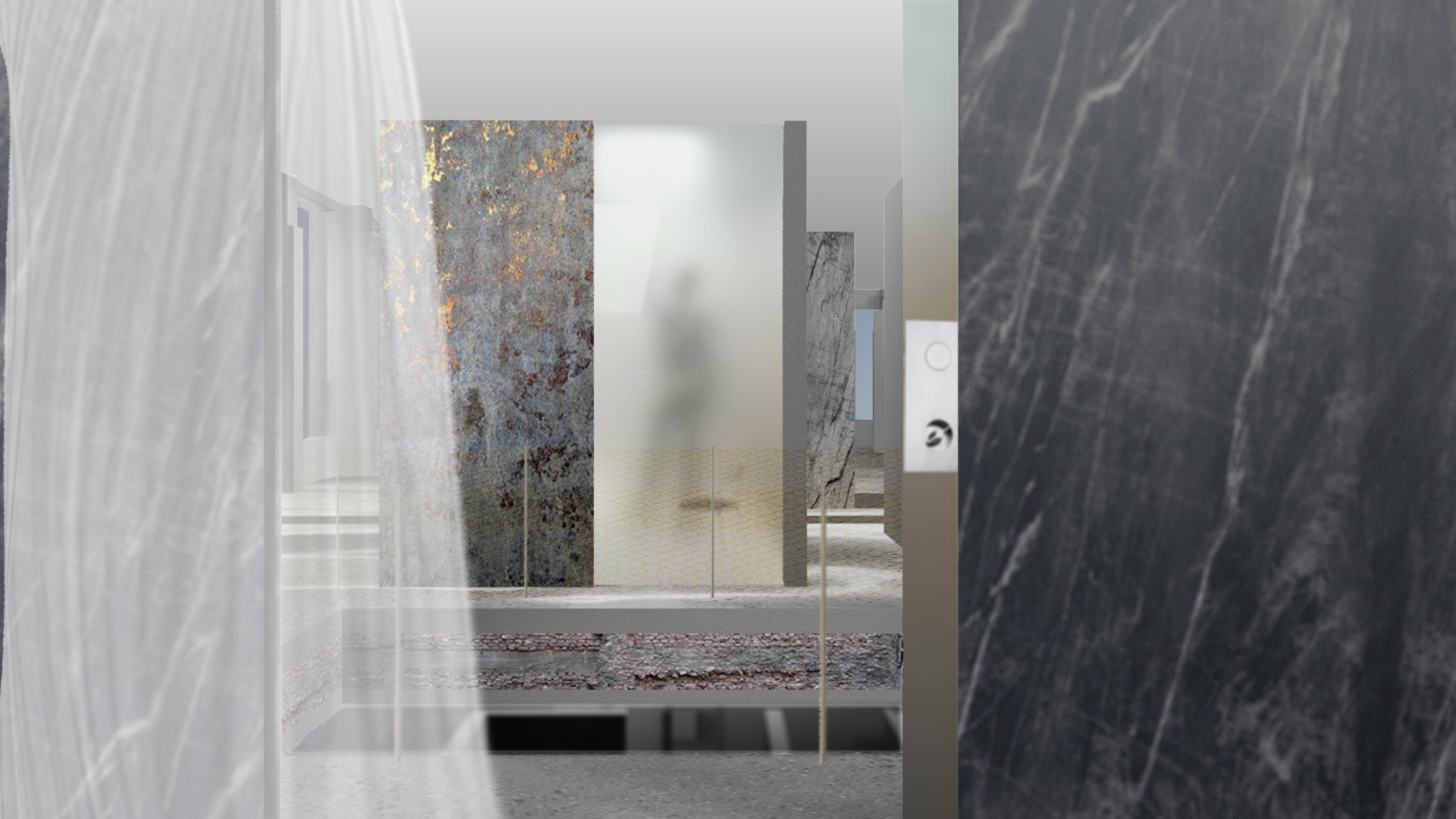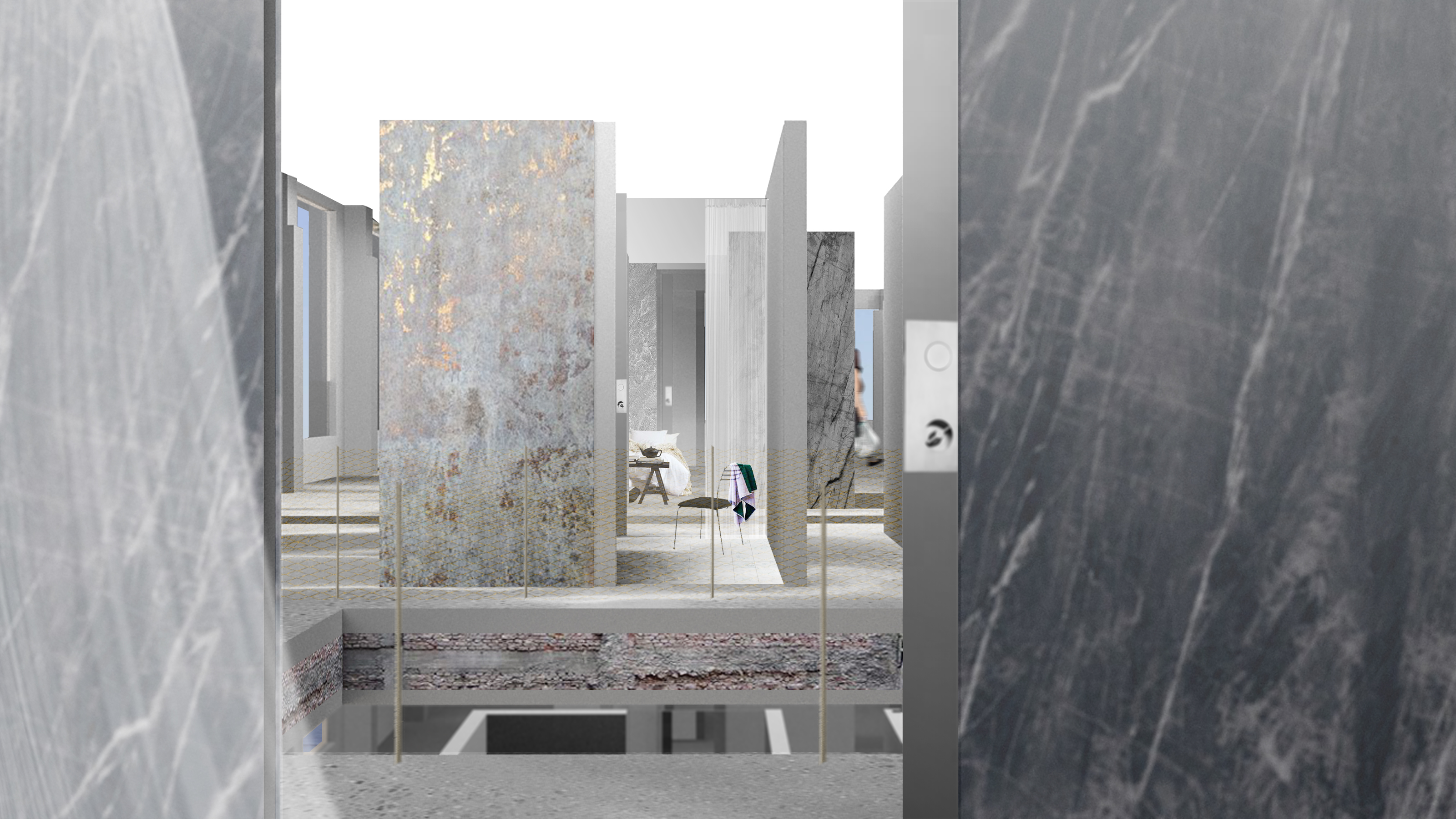Marriage Market
Neri and Hu, Fall 2018 Advanced Studio
Neri and Hu, Fall 2018 Advanced Studio
“你朋友哪年的?属羊的不要,一定要上海本地人...”
“How old is he, your friend? [We] don’t want anyone born in the Year of the Lamb, [he] must be a Shanghai local...”



“小陈忙着跟别人谈呢,我们帮她把把关...这样的她不会感兴趣的。”
“Mrs. Chen is busy with someone else, we can help her make this decision ... (after listening to description) she won’t be interested in your kid.”
These are excerpts taken from conversations at the weekend “marriage market” that we visited in Shanghai. These marriage markets are a rare instance of self-perpetuated, mass gatherings allowed by the government for parents of single children. Despite the walls of formatted flyers, marriage markets are less about actually hitching unwilling children up and more about a lost sense of close-knit community. People speak to each other freely about topics and people close to their hearts. Many come simply to see other parents, friends now, through weekly contact throughout the years.
“Cities with Marriage Markets are Cities with Hope”, as one article put it. It is this program that I hoped to bring to our adaptive reuse site in Jing-an, a district full of elderly residents and a lack of public, social activity.

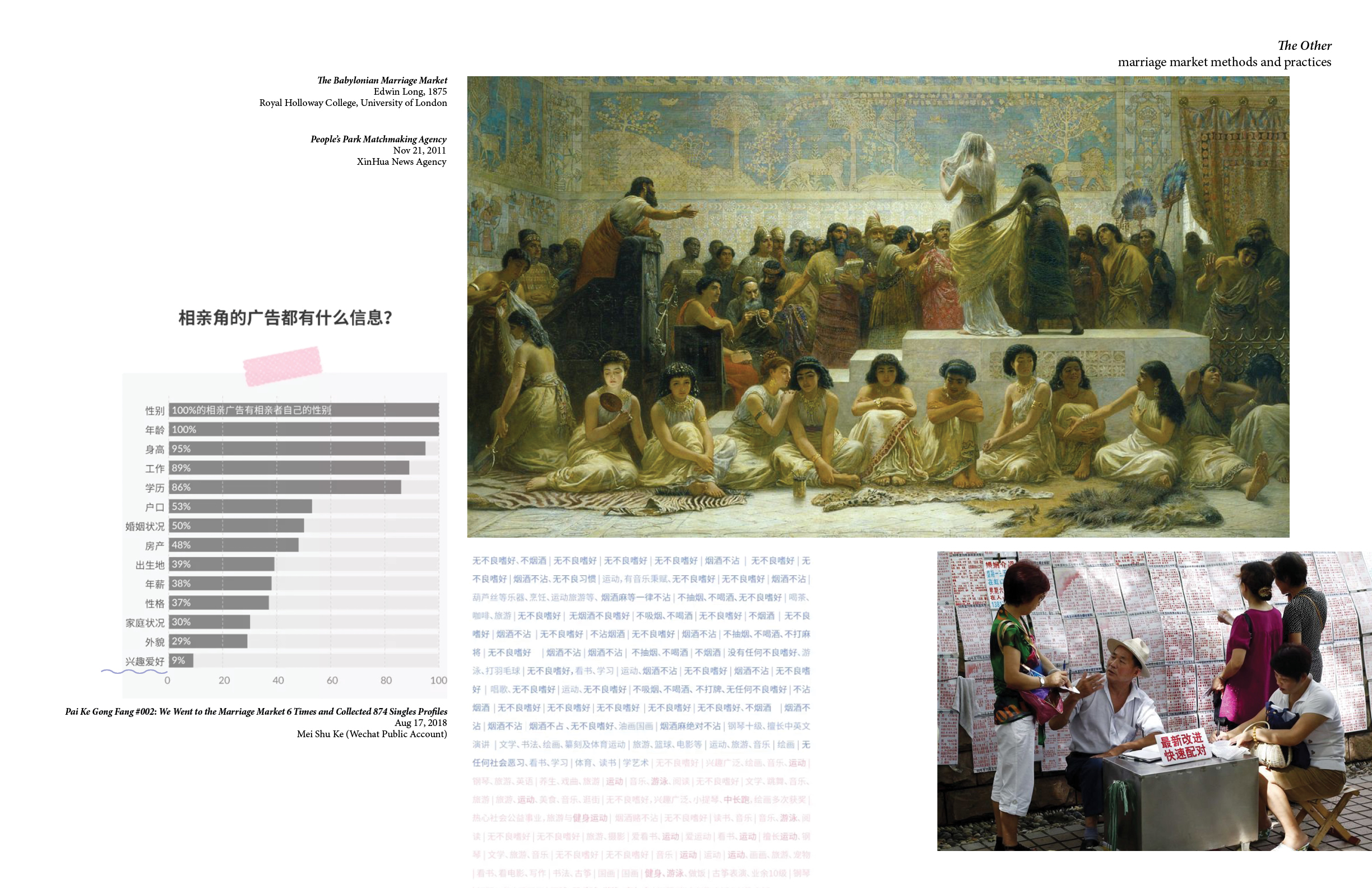
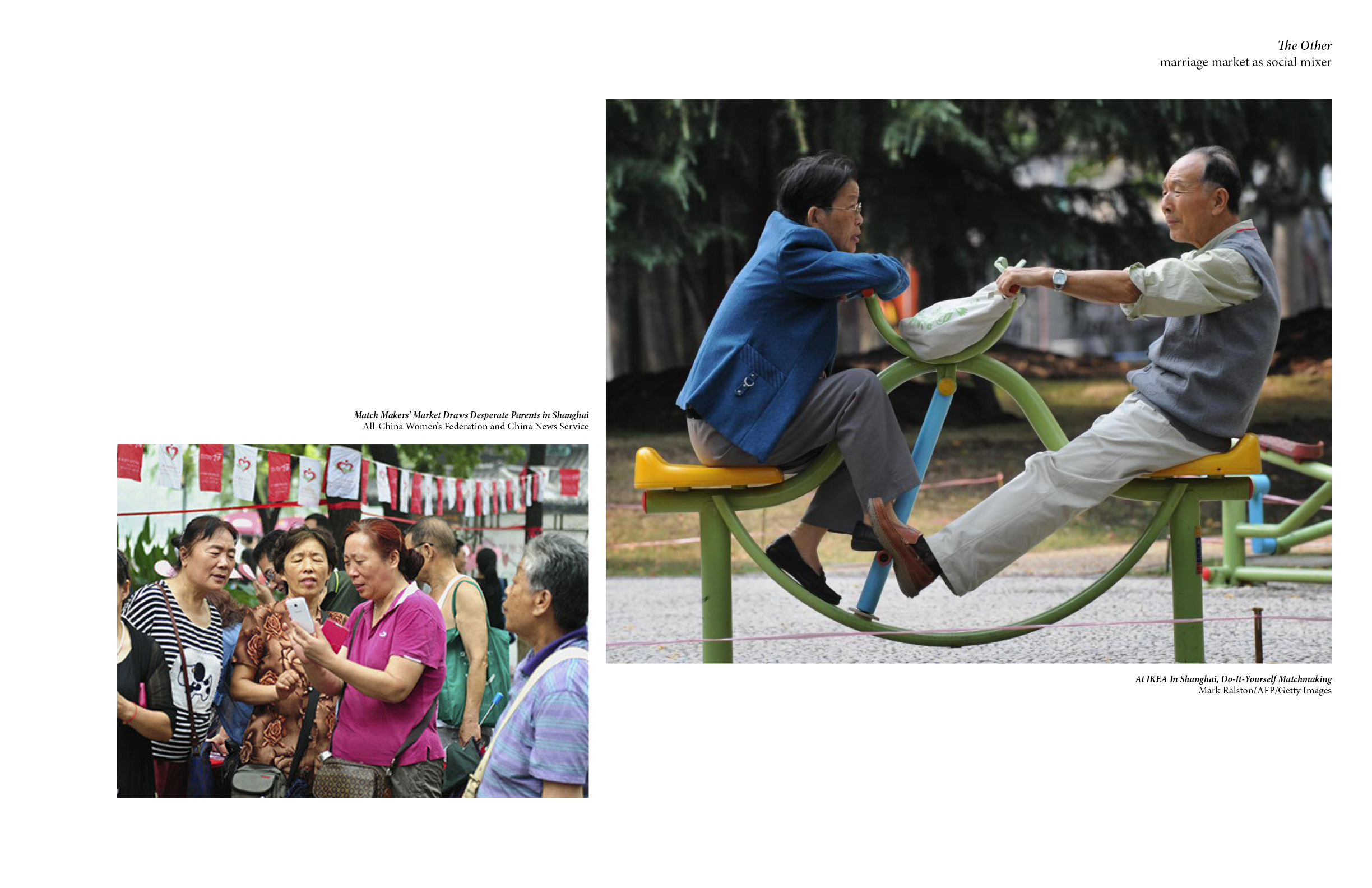
The proposed program for the DHL building is a boutique hotel - one that houses the young singles that come to the site to stay, not only for the central location of Jing’an, but also to witness and participate at will in the spectacle of the new marriage market part on the ground floor.

The singles building is, appropriately, a single-occupancy hotel in the vein of capsule hotels popular in Japan. It is also split by gender, and an existing parti wall, down the middle - a logic only visible from the backyard through the twin scissor fire stairs. The two stairs are mirrored, yet never meet, making for a visual metaphor for the marriage market below.
A separate wing of the hotel complex houses parents who have travelled from out of town to participate in the marriage market phenomemon. The open plan of this former aircraft factory makes for the perfect space to create a miniature covered “market” to house activity for the marriage market in less than favorable weather conditions.

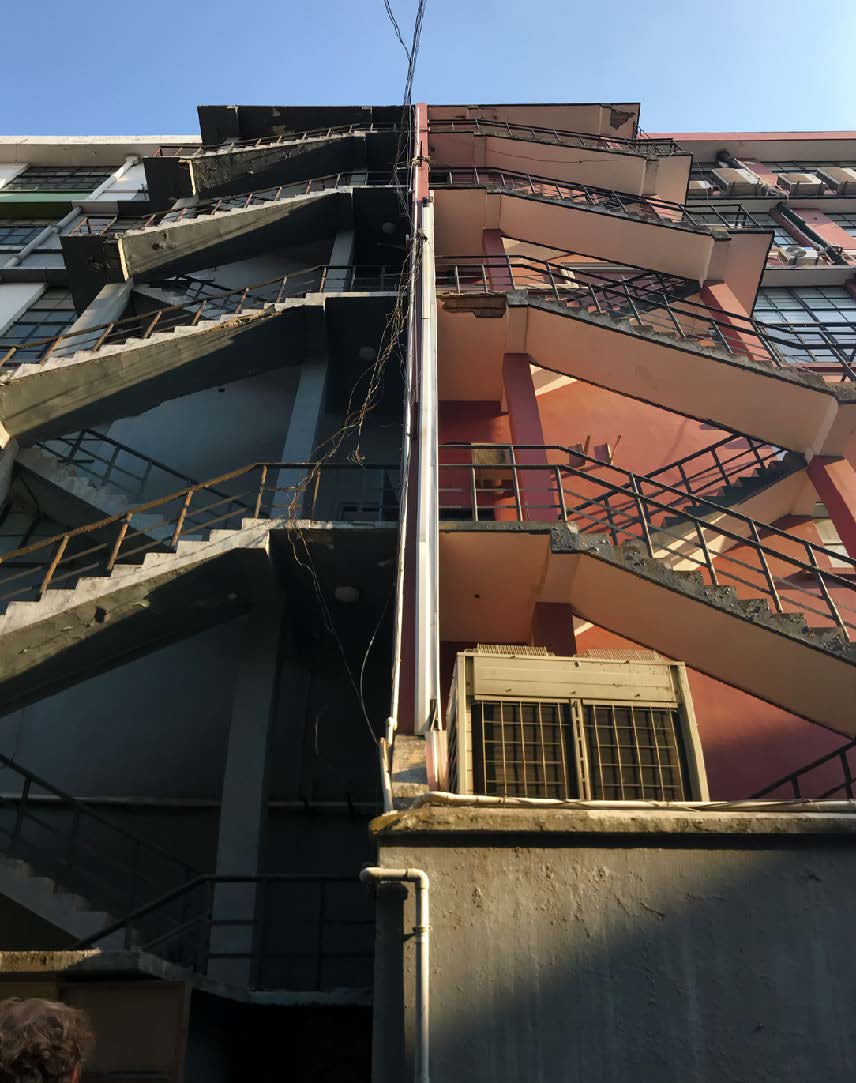
.
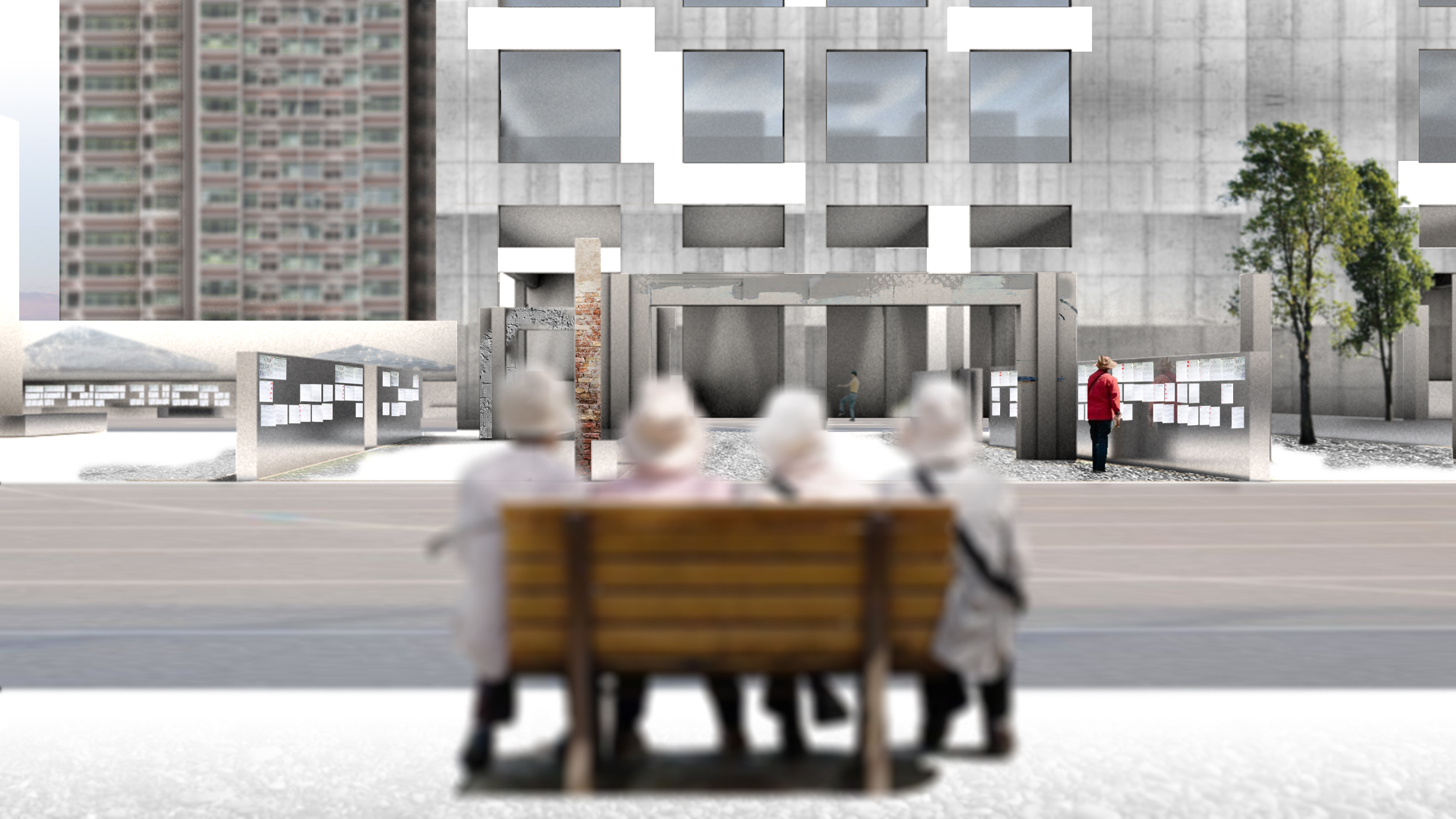
The park improves on the existing marriage market infrastructure by providing ancillary programs for parents to occupy themselves with. More seating and shade is provided through planting and by the overhang of the old factory. A 200 meter running path makes for a welcome addition to existing exercise equipment on-site.
![]()
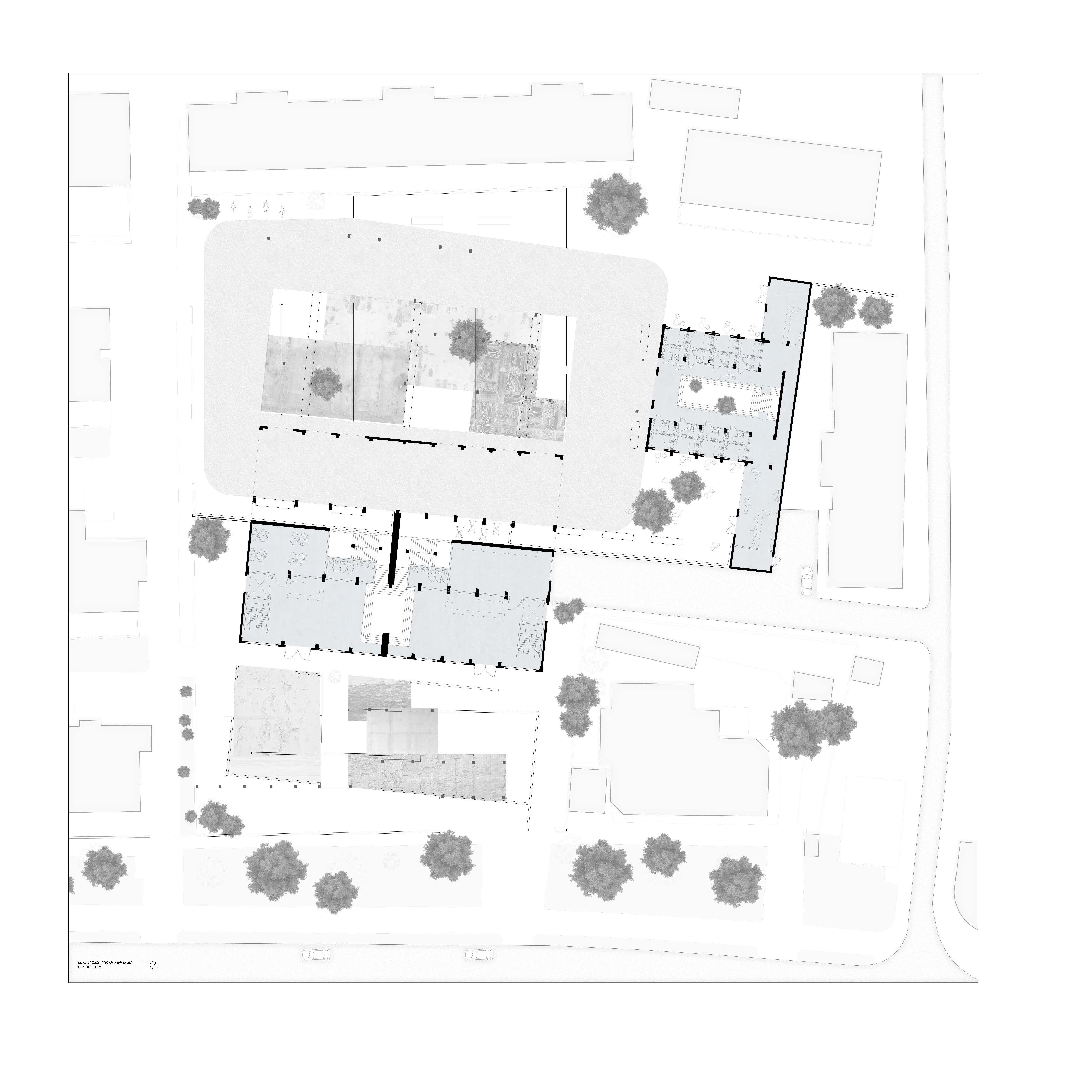

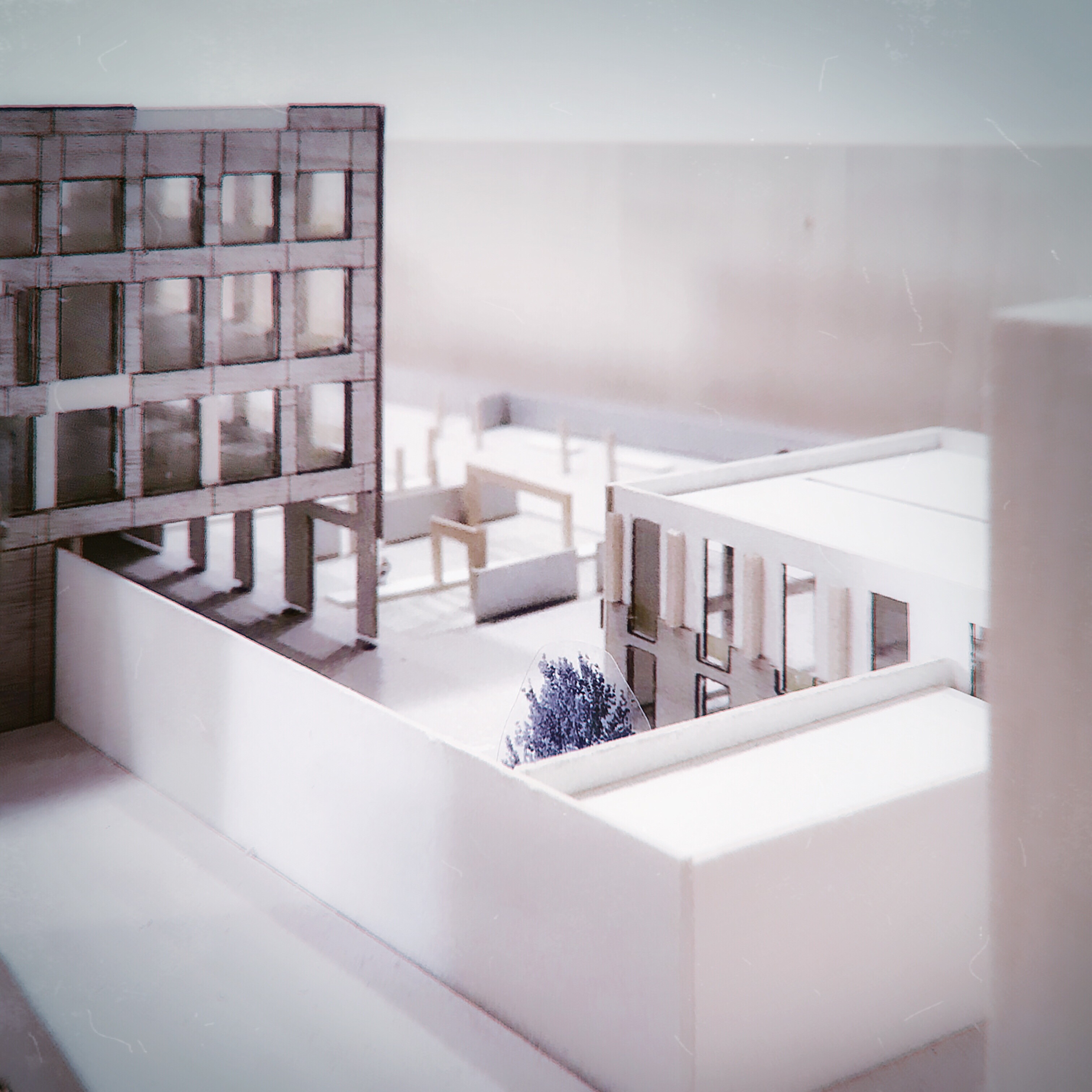
The parents quarters are intentionally open at a tangent to the flow of the running path. This encourages locals to see within and interact with the visitors to their neighborhoods - involving them in the communal spirit of the marriage market
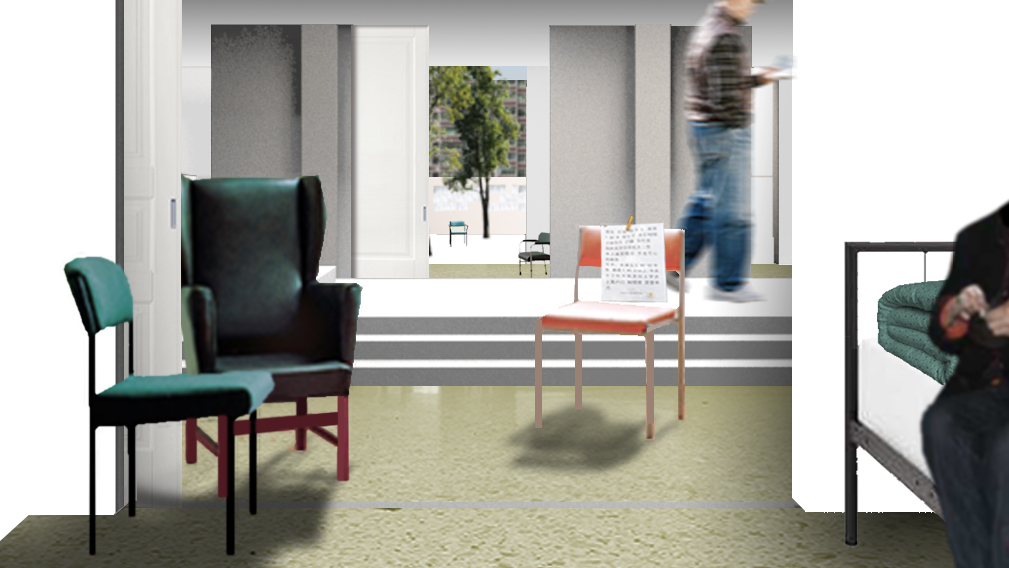
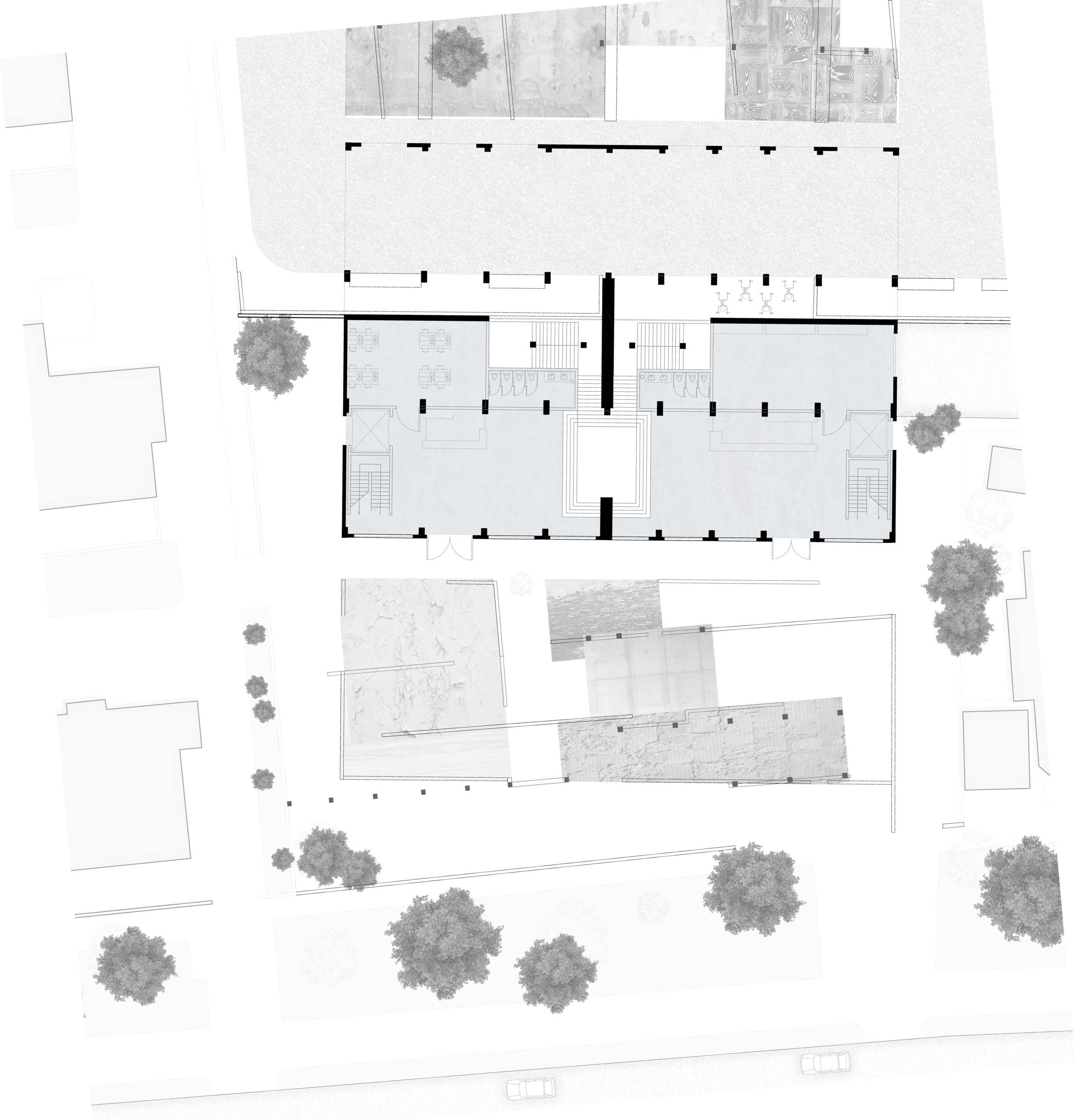
The marriage market is located away from the street, and maintains a closer connection with the dense residential area of its users. The singles hotel is then able to maintain a strong street presence, using the distance between street and existing building to create a different type of park: one of forced separation. The park uses fragments of previously existing buildings to separate the sexes, and frame views between incoming visitors.
![]()
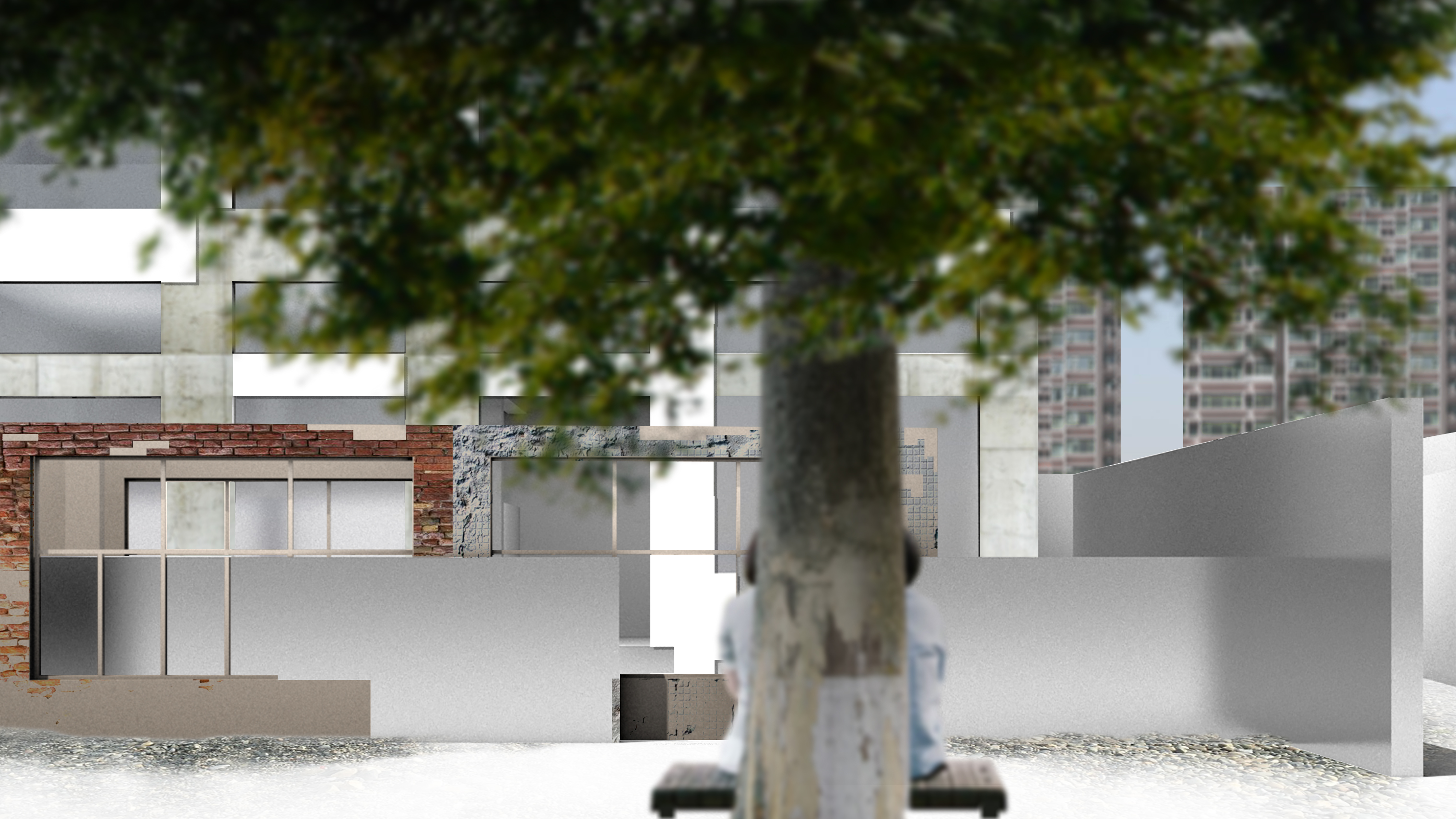
The concept of forced separation with high visibility creates a means of serendipity at odds with the traditional methods of matchmaking. As this idea continues inside the hotel, sliding layers of walls, mirrored surfaces, and sheer curtains complicate, reflect, and misdirect this view of individuals across floors. Tearing down the old parti wall to create these views leaves a uncrossable expanse between occupants on either side, further strengthening the power of these intimate glances.



